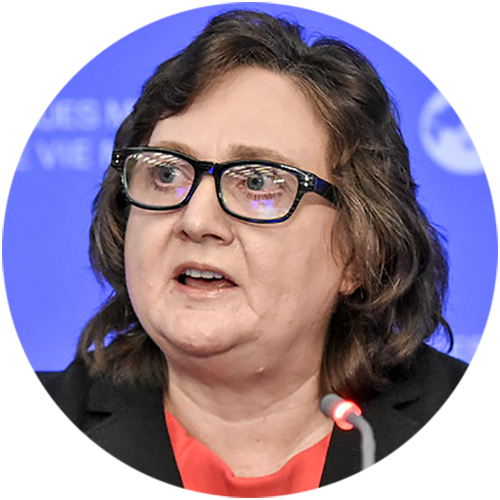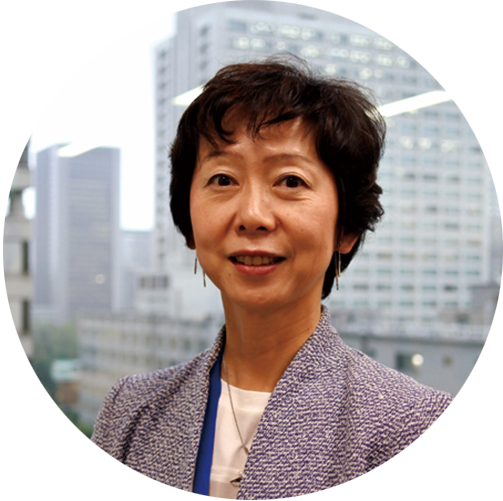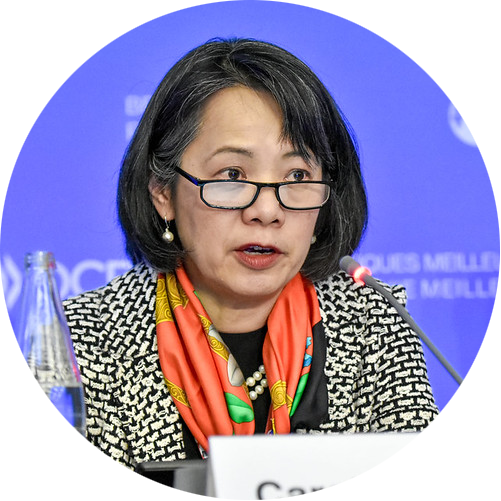OECD.AI Policy Observatory launch brings experts together to share and shape AI policy
OECD.AI provides the widest possible audience with information about the OECD AI Principles , AI-related data and news.
On 26-27 February 2020, the OECD used ONE AI’s (the OECD Network of Experts on AI) first meeting to launch the OECD.AI Policy Observatory. The network is made up of policy, technical and business experts in AI. The launch allowed the network’s experts to discuss how they see OECD.AI helping to shape AI policies that are both trustworthy and beneficial to all.
As an online platform, OECD.AI provides the widest possible audience with information about the OECD’s Principles for Trustworthy AI, global AI-related data and news. Both the OECD.AI Policy Observatory and the ONE AI network of experts are key parts of the OECD’s Going Digital project.
The OECD as a centre of gravity for AI policy and practices
AI use needs guidance and co-operation, to ensure that it is human-centred and to manage risks. In the last few years, governments have turned to the OECD as a partner to initiate dialogue and develop guidance. Today, the OECD hosts its own initiatives, such as the OECD.AI Policy Observatory, the OECD AI Principles and a network of experts acts as an informal advisory group to guide its initiatives.
More recently, a group of OECD countries have asked the OECD to host the Global Partnership on AI’s secretariat (GPAI), an international coalition aimed at ensuring that AI is used responsibly, with respect for human rights and democratic values.

It is important to recognise that there has been a proliferation of AI initiatives in the world (…) It is also important that we establish some kind of a centre of gravity around to which we can all organize our efforts in a real community of practice. The OECD can really be that centre of gravity that we need.
Michael Sellitto, Deputy Director, Stanford Institute for Human-Centred AI
As Michael Sellitto pointed out at the OECD.AI launch, the OECD can become a centre of gravity for analysis, data and guidance related to AI policy and practice. Hosting GPAI side by side with its own initiatives reinforces that idea and reassures global actors that AI can and will develop in a way that is responsible and consistent with human rights, fundamental freedoms and the democratic values that are cherished by OECD member countries and their citizens.
Karine Perset talks about the OECD.AI Policy Observatory:
Highlights from the OECD.AI Observatory launch

“We are taking an important step towards bringing the OECD AI principles to life by launching this Observatory. It will help us nurture the development of AI that is innovative, trustworthy and human-centric.”
Gabriela Ramos, OECD Chief of Staff and Sherpa to the G20

As we collectively work to foster this public trust and confidence in AI technology and protect our civil liberties, privacy and our shared values in the application, we can all work together to realise the potential of AI technologies for the world.
Lynne Parker, Deputy United States Chief Technology Officer, The White House

When discussing policies in government it is essential to be able to cite comparative materials from other countries. OECD.AI can solve this problem: the ability to learn about each countries’ AI policies, online, exactly matches the needs of policymakers.
Makiko Yamada, Vice-Minister, Ministry of Internal Affairs and Communications, Japan

We need a mutual understanding of what we mean when we talk about AI or intelligence tools and systems. Without that, we don’t know what we are measuring, and without measuring, we can’t measure the effectiveness of our policies.
Michael Schoenstein, Head of Strategic Foresight & Analysis, Germany

We strongly believe that the Observatory is a unique policy platform globally, for sharing evidence and knowledge that can help governments, and other stakeholders move from principles to practice of trustworthy AI, at scale.
Carolyn Nguyen, Director of Technology Policy, Microsoft

The Observatory uses scalable AI techniques to process and analyse AI related global data streams, to deliver insights in a visually appealing and human understandable way and to optimise the relevance of the results for policy makers globally.
Marko Grobelnik, Digital Champion of Slovenia in the EC, Jožef Stefan Institute AI Lab.

The OECD Policy Observatory is an excellent resource for technologists and other stakeholders developing, standardising and deploying AI systems, so that they can understand the AI policy environment.
Clara Neppel, Senior Director, IEEE & Technical Advisory Committee to the OECD

UNESCO and OECD mandates are complementary. The OECD is doing upstream policy advice and good economic and technical practices. UNESCO does a deep dive into our fields and brings in the global south and gender equality.
Sasha Rubel, Programme Specialist, UNESCO

This is not OECD-centred; this is for all OECD members and non-members as well. And we are going to reach out to the rest of the world. This is a broad partnership.
Ulrik Knudsen, OECD Deputy Secretary General
For more on ONE AI, the OECD Network of Experts on AI, please visit the OECD.AI Observatory.

































